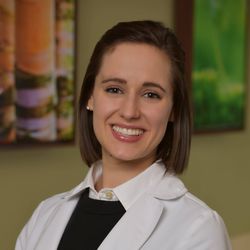Often we think of a healthy mouth as straight, white teeth. But the truth is, a healthy mouth goes beyond our smiles. Our gums are easily overlooked when it comes to talking about our oral health. However, our gums are crucial to not only our mouths but to our overall health. At our dental office in St. Louis, we strive to educate our patients about the importance of healthy gums, so in this blog, we’re going to talk about just how serious of a role our gums play in our bodies.
Gum Disease
When we don’t take care of our gums, we can develop a serious condition called gum disease. Gum disease is caused by a buildup of plaque. Plaque is loaded with dangerous bacteria that if not removed, can lead to infection of the gums. This infection is gum disease. There are three stages of gum disease — gingivitis, periodontitis, and advanced periodontitis.
Gingivitis – This is the earliest stage of gum disease and can be treated.
Periodontitis – If gingivitis is left untreated, it can progress into periodontitis when the disease starts to affect the bones holding our teeth in place.
Advanced Periodontitis – As periodontitis gets worse, it can turn into advanced periodontitis. If this happens, the bones supporting our teeth are beginning to break down, and we may experience tooth loss.
Gum Disease & Your Body
The bacteria that cause gum disease can also lead to other serious problems in the body. In fact, many research studies have shown a correlation between gum disease and several health conditions, such as:
- Lung Disease
- Cancers
- Heart Attacks
- Strokes
- Signs of Gum Disease
- Gums that bleed during and after tooth brushing
- Red, swollen, or tender gums
- Persistent bad breath or a bad taste in the mouth
- Receding gums
- Loose or shifting teeth
In the early stages, gum disease may not necessarily show any signs. This is why appointments with your dentist in St. Louis every six months are so important. Your dental team is trained to look for early warning signs of gum disease so they can recommend treatment quickly. Early diagnosis is key to successful treatment.
If it’s been more than six months since your last visit or you notice any signs of gum disease, call our dental office in St. Louis to schedule a visit.
More Blog Posts
Save time by completing your new patient forms and sending them to us online or bring them with you to your first visit.
- MON - THU8:00 am - 5:00 pm
- FRI - SUNClosed








